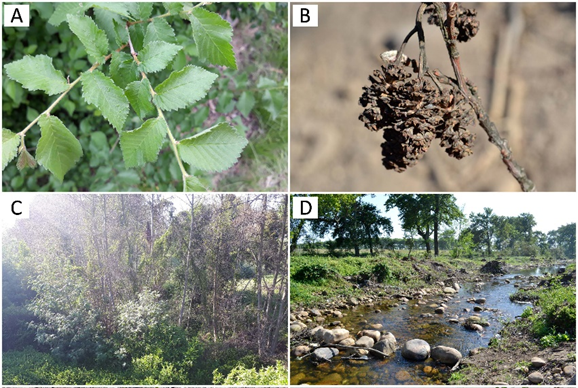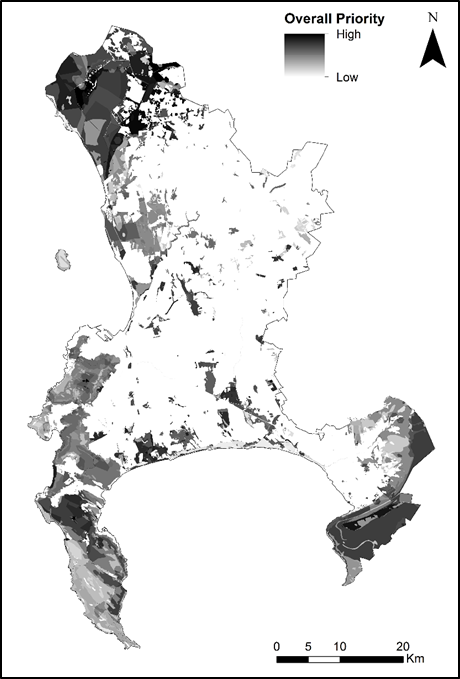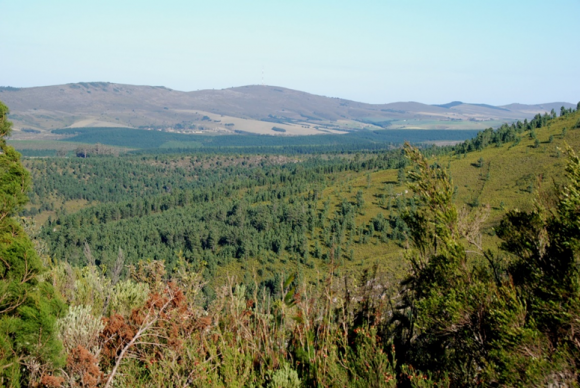24 May 2019 | By Brent Abrahams
Biological invasions are a major threat to already complex social-ecological systems and require the integration of knowledge from various disciplines and stakeholders. Accordingly, there have been strong calls for integrated approaches to developing solutions that address the threat.
A study conducted by Brent Abrahams (C·I·B PhD student) and supervised by Prof Karen Esler (C·I·B Core Team Member) and Dr Nadia Sitas (Centre for Complex Systems in Transition) at Stellenbosch University, made use of qualitative content analysis to provide an overview of the research produced under the auspices of the Working for Water Programme from 1995 to 2015 and to assess the extent to which research outputs reflect the integration of diverse disciplines.
The study found that Working for Water associated research focused mainly on the ecological processes and impacts associated with invasive alien plants and biological control. While social science and operationally focussed research are, under-represented and few and far between. The over-representation of ecological research may be concerning to funders, like Working for Water, because more social and economic studies are needed to inform and guide their decision-making. However, in the context of invasion biology and the management of invasions in the country, the importance and necessity of ecological research shouldn’t be ignored. Strong cases have been made for investing in ecologically focused research and capacity building towards addressing challenges associated with the management of invasive alien plants. While an over-representation of ecologically focused research isn’t inherently problematic, a lack of integration with economic or socially focused knowledge may be, particularly when addressing social-ecological system challenges.
Integrative approaches to research that engage the social sciences is necessary to solve complex social-ecological challenges. But, doesn’t occur automatically – even when public funding encourages it. Integrative research involves more than simply aggregating several disciplines into a single research project. Instead it requires the effective coordination and interaction between relevant stakeholders and creating environments that encourage the incorporation of multiple knowledge systems. As well as a more pluralistic approach towards achieving specific social-ecological system initiative mandates. Encouragingly, there have been efforts towards improving the integration (albeit limited with respect to socially focused research) of numerous disciplines, knowledge systems and stakeholders in the planning and research processes, and towards informing operations within the Working for Water context.
Integrative research approaches, such as transdisciplinarity, have the potential to improve interaction between science, policy and practice through improved stakeholder engagement and embedding research in societal processes, improving its relevance and practicability to knowledge users.
However, these approaches don’t guarantee the automatic integration of scientific knowledge into policy or practice unless appropriate governance mechanisms are put in place. To be effective, SES research should be developed jointly by end-users from a wide range of backgrounds and implementation contexts. In the case of Working for Water, turning its research investment into action requires the effective coordination of multiple partner institutions, their mandates, and resources – particularly where expectations and operational standards may differ.
“For science to have its desired impact and result in meaningful change, it must first be embedded in the society it seeks to influence. For that to happen the artificial distinction between science and society, and the scientist and the layperson, must be overcome,” says Brent Abrahams, lead author of the study published in the South African Journal of Science.
Read the paper
Abrahams, B., Sitas, N. and Esler, K.J. 2019. Exploring integrative research in the context of invasive alien plant management. South African Journal of Science. Volume 115(3/4) https://doi.org/10.17159/sajs.2019/4263
For more information, contact Brent Abrahams at babrahams@sun.ac.za



